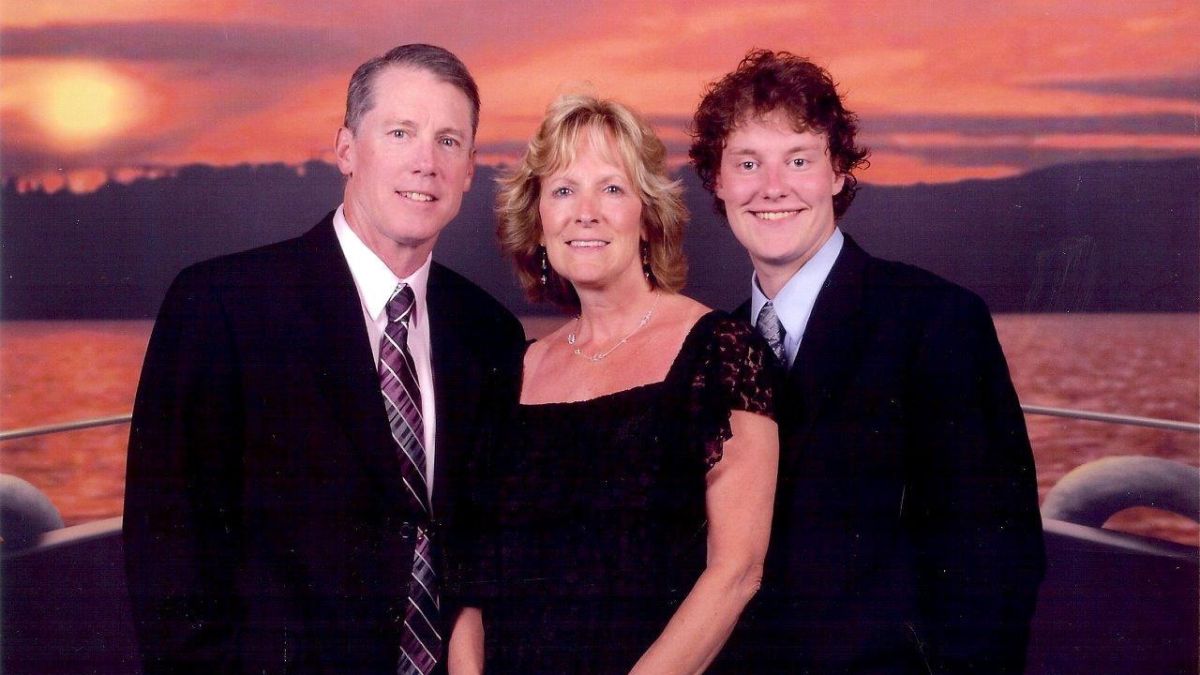At a glance
Taylor was diagnosed with an FASD in 8th grade. Before he was diagnosed, he struggled and had been misdiagnosed with attention-deficit/hyperactivity disorder (ADHD) in first grade. He lied, took things in school that did not belong to him, and recalls being disconnected and very frustrated.

Taylor's story
Getting a diagnosis
In the 8th grade, Taylor took a pocket knife to school and was suspended. Since it was a weapon, he had to go through the First Offender's Program and seek counseling. The counselor noticed a gap between action, reaction, and consequences, and had Taylor tested. Taylor was finally diagnosed with an FASD.
When Taylor was born, his birth mother had disclosed to the doctor that she was dealing with alcohol use disorder while pregnant. This information from Taylor's adoptive parents, Mark and Cathy Allen, was helpful to finally diagnose him with an FASD. After Taylor's diagnosis, the Allen family connected with FASD United (formerly NOFAS) and the Kennedy Krieger Institute for help.
Misunderstood behaviors
Taylor has struggled with many issues. This includes difficulty maintaining attention, inability to manage time, poor problem-solving skills, inability to learn from consequences, and social awkwardness. He has also suffered from anxiety and depression. Cathy said, "Taylor has the outward appearance of any 23-year-old since he is on the high functioning end of the spectrum. So, his FASD behaviors are often misunderstood, causing Taylor extreme anxiety and depression."

After much struggle and perseverance from Taylor and his family, Taylor earned his associate's degree in electronics from a trade school. Taylor currently works as a lead custodian at an area airport. He enjoys playing and watching baseball, tinkering with computers, reading, and spending time with his girlfriend. Taylor hopes to further his education, and he is working toward living independently.
In his own words
"We were like so many other families out there. We were looking for guidance and trying to find counselors, practitioners. Through NOFAS, I was able to have a voice and speak out. By talking with others at the beginning of their FASD journey, we are healing and helping ourselves. We are reminding ourselves that we are not alone.
My mom talks to families that call her all the time. They are just trying to get information, to understand, to have a shoulder to cry on. I hear these conversations. They are so emotional. I walk by and listen and I can't help but tear up because I was there with my parents. I know what it was like for my mom when she made that call to Kathy [Mitchell, FASD United (formerly NOFAS)].
Now, NOFAS has empowered me. Several times a year they give me the podium to speak and tell my story. Getting up in front of a crowd to speak about FASD takes away the control that this disability had over me. I didn't know why I did a lot of things I used to do. But with this, I do know why I am doing it.
For the past year, I have been leading a teen group with the help of Kathy and my dad. We mostly talk about what it's like to be us, our day-to-day life, things we run into. We get into how bad it feels to be misunderstood, how we just wish people would understand us. At the end of the day, no matter how bad, we are all smiles because we've met people just like us."
